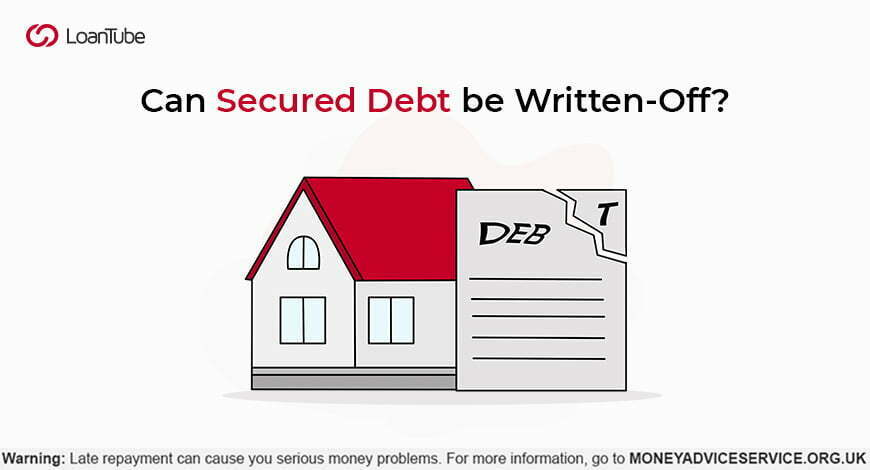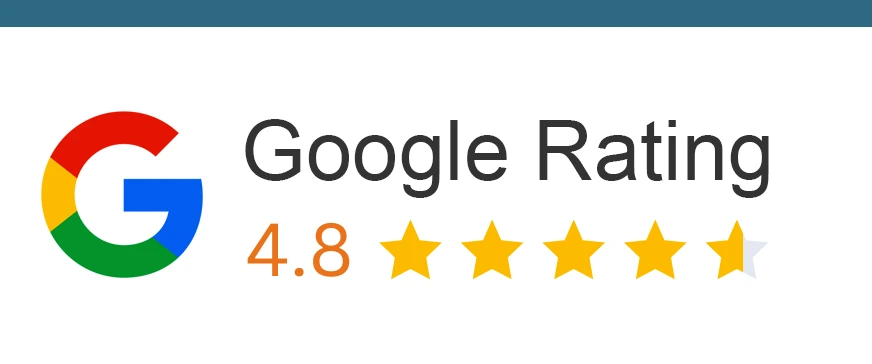Life is dynamic, and so are our physical and financial circumstances. If you have multiple loans, the thought of being unable to pay them off must’ve crossed your mind at some point. This cloud of thought becomes denser as we come across people who are not in a condition to repay their dues.
Just what would happen if you’ll not be able to pay off a loan? Can your debts be written off? How would a write-off look on your credit report?
This article covers some of these questions to help you understand the process of debt write-off.
- Can A Secured Loans Be Written Off
- When can a debt be written off?
- What evidence might a creditor need?
- Can a creditor write off my secured loan?
- What impact will a debt write off have on my credit score?
Maximise your options: Compare and apply for loans below with LoanTube
Apply Filters
Can A Secured Loans Be Written Off
In rare and extreme cases, a Secured Loan be written off by the lender/Creditor. Sometimes, people hit a rough patch in life that renders them unable to pay anything towards their debts. Such a situation could arise if you’re permanently unable to work or suffering from a terminal illness.
If you find yourself in such a situation, it may be worth asking your creditors to write off your debts. Creditors may agree to this arrangement if:
- They know it isn’t possible to recover money from you
- They understand that you don’t have assets that you can use to recuperate the loss
- You provide substantial evidence to prove that it isn’t practical or fair to keep pursuing you for money
Convincing a creditor to write off a debt and give up on collecting their money is not easy. Most creditors would try and work out options to recover their money from you. You can only do your best in making them understand that writing off your debt is as much in their best interest as it in yours. Providing circumstantial evidence can make a stronger case for you.
If you successfully convince a lender, they may agree to write off your debt, especially if it’s a considerably small amount. Some lenders may not have the option to write off your debt, perhaps for legal reasons. In that case, the lender may simply decide not to pursue you for the debt.
However, a lender may only agree to write off debt in the most critical situations, wherein you provide evidence of your inability to repay.
When can a debt be written off?
Here are some scenarios wherein a creditor may agree to write off your debt:
- You’re a tenant with restricted cashflow, no income to spare after paying for necessities, and no assets that you could sell to pay off the loan.
- You’re suffering from a terminal illness or anything that affects your ability to get or keep your job.
- Benefits are your only source of income, and you prescribed the need for a regular carer.
- You’re on a pension or nearing the age of retirement. Or, you’re a benefits claimant and will most likely remain on a minimal income.
- Your circumstances are such that the odds of you making a worthwhile payment to your lenders, either now or ever, are zero to none, considering that the situation may worsen.
- A lender is likely to write off your debt if they see other lenders have done the same.
- The lender may consider a write off if the debtor passes away without leaving behind any assets such as property, money or vehicle, to be inherited by family or friends.
In such situations, the lender may accept that not pursuing you for recovering the money is in their best interest. Even if they were to appeal to the court, the court might agree that you can only pay a token amount. This amount could be as less as £1 a month. Collecting a £1 each month may cost the lender more than what they get back. So, writing off your debt would be the more sensible option.
If you borrowed a joint loan with your partner, ensure that you mention their name in the debt write-off agreement. Otherwise, the lender will legally be able to pursue them for the debt. The onus of repaying the entire amount will fall on your partner.
What evidence might a creditor need?
Any lender or creditor will require evidence that proves your inability to repay the debt in order to write it off. Here’s what you can provide:
- Budget Summary: A budget summary will give your creditors an insight into your income and expenses. This will prove that you don’t have surplus income to pay off your debts.
- Medical Evidence: If you’re suffering from health issues that could potentially affect your ability to settle your debts or manage money altogether, you should inform your creditor about it. You can seek professional help from health and social care to fill out a Debt and Mental Health Evidence Form. This form would help the lender understand the impact that your condition has on your life. In the case of physical illness, your doctor could issue a letter explaining your situation to the lender.
- Social Service: Social workers can help you by writing to your creditors, justifying how writing off your debt would be helpful, considering your circumstances.
- Proof of Death: In case of a debtor’s demise, creditors may write off the debt if the deceased didn’t pass on any assets to their friends or family. In this case, the creditor will require a copy of the formal death certificate. You can request a copy on the GOV.UK website.
Can a creditor write off my secured loan?
If you’re in secured debt arrears, the normal course of action that a creditor would take would be foreclosing, repossessing and possibly selling your assets to recover their money. In some situations, the proceeds from the sale of your assets may not suffice. This usually happens when they sell your home for a much lower amount than what you owe. The money may not be enough to pay off all your debts – outstanding mortgages or other secured loans.
Sometimes, the debt may be in the form of monthly instalments that keep accumulating interest while you await the sale of your home. In this period, you will be held accountable for these costs as well as the estate agent’s fee.
The outstanding balance that you still owe to your secured loan creditor is termed as a mortgage shortfall. Mortgage shortfalls can sometimes amount to a much more significant sum than anticipated. Nonetheless, if you think your situation requires a write-off, you can certainly request it, but creditors rarely agree, except in extreme cases of hardship
What impact will a debt write off have on my credit score?
If a creditor agrees to write off your debt, it’ll be recorded on your credit report as paid. However, the following scenarios may stay on the credit report for 6 years:
- Missed payments.
- Lower payments (paying less than the contractual agreement).
- Your account defaulted before settling the debt.
Sometimes, a lender may agree to write off a portion of your debt if you consent to pay off the remaining in either a single lump-sum payment or over a few months. This is usually called a full and final settlement. It will get recorded on your credit report as a partial payment. Whether or not a lender will take this offer depends on how much you’re willing to pay. A creditor will be naturally be motivated to recover whatever they can. So, it is likely that they agree to this arrangement rather than writing the whole debt off.
Conclusion
A debt write off may sound like the ideal solution to your debt problems, but it certainly isn’t that easy to achieve. Creditors only write off debts in severe cases, where they have proof of the debtor’s inability to repay the money.
It will be in your best interest if you don’t rely on such options to escape your debt. We understand your struggle with debt, but there’s light at the end of this tunnel. Consider alternatives such as debt consolidation to make your debt more manageable. Creditors may consider writing off debts only in extreme situations, and it is not guaranteed.


